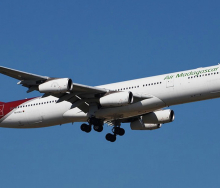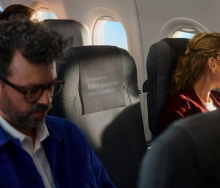After more than a year into the pandemic, agents are still struggling to obtain refunds for unflown tickets on behalf of their clients from a number of airlines. Travel News, with the help of Asata, looks at the Iata resolutions relating to refunds, to understand where the air transport association stands on the matter.
Section Two of Iata resolution 824r on refunds states the following:
2.1 Members are recommended to authorise the use of GDS refunding applications for totally unused traffic documents. In all cases Members shall expedite refunds on unused or partly used Traffic Documents in accordance with the following practices:
2.1.1 Unused Traffic Documents
ensure that valid refunds on totally unused Traffic Documents are made or authorised not later than the following remittance schedule after the refund application is received from the Agent by the Carrier,
2.1.2 Partly Used Traffic Documents
will ensure that refunds on partly used Traffic Documents are made or authorised by not later than two months after the refund application is received from the Agent by the Carrier.
2.1.3 Inability to Process
notwithstanding the provisions of 2.1.2 above if a Member is unable to process a refund on partly used Traffic Documents within the prescribed time-frame, the reasons will be communicated to the Agent by the Carrier.
It is clear from the above that Iata resolutions require airlines to refund unflown ticket revenue no later than in the remittance following the refund application. As South African agents remit on either a one- or two-week cycle, this means that airlines should be processing refunds within a maximum of two weeks after receiving a refund request – this is according to Iata resolution guidelines.
A recent Iata Passenger Agency Conference Report on the refund situation expanded on the matter, saying that, taking the feedback from the Passenger Agency Programme Global Joint Council and Passenger Agency Conference Steering Group into account, two major campaigns had been conducted by Iata, reminding and requesting BSP airlines to comply with government regulations on passenger rights on refunds, as well as the terms established in Resolution 824r. As a result, said the report, about 70 of the BSP airlines that were not properly refunding, reopened refund capabilities through the GDS and/or BSPLink.
The report also said that since this had occurred, travel agent representatives had continued to raise this matter as an ongoing issue for them and were continually urging Iata to manage the situation. Following these requests, Iata then disseminated to the airline community a list of recommendations regarding voucher policies as drafted by the World Travel Agents Associations Alliance, the United Federation of Travel Agents’ Associations, the European Travel Agents’ and Tour Operators’ Association, and Traveltech , a Travel Technology Assocation, for airlines to take into consideration.
The agent associations’ recommendations
The recommendations by agency associations are summarised by Travel News below:
The agency associations’ document outlines that, as distribution stakeholders book approximately 50% of all air travel globally, both they and airlines are in this crisis and need to work together on recovery efforts that support both passengers who had their flights cancelled due to COVID-19, and the short-term financial stability of airlines.
The document recommends that airlines should reinstate automated ticket change capabilities available through the GDS to improve efficiency, saying that such automation processes would reflect any new policy on refunds or vouchers to streamline the process for both airlines and agencies alike, and provide a better experience for the customer. It adds that travel agencies also should be permitted to process all refunds or vouchers through their GDS of choice, per applicable airline-specific policies.
“Full refunds for customers requesting them (in lieu of a credit for future travel) should be processed without delay. However, given the financial position of the airlines globally, we would support a grace period of 30 to 90 days for processing, rather than the current seven-day requirement resulting from legislation in the EU and other markets. This policy should be published by airlines and be easy to refer to – customers who have requested such a refund via a travel agent, should receive the same treatment as a customer who has requested the same refund directly from the airline. Airlines should also ensure that the total amount paid by the customer, including ancillary fees, are fully refunded to the customer,” it says.
If vouchers are offered and accepted by the customer, the document stipulates that vouchers must be made accessible through all channels, including the GDS. Where a ticket was paid for by a company on behalf of an employee, the voucher should be issued in the name of the company.
The report recommends the use of credit notes stating the value of the total ticket price, including ancillary services fees, and says it should allow true flexibility in its use. Vouchers should be available for a period of 12 months from the original date of travel departure, free of change-fees and they should be automatically refunded in cash on the expiration of the voucher. It should be usable on all airlines in a group, for any route operated by the airline, and should not be restricted to the original destination or class of travel. Vouchers should also be usable for any passenger. The redemption of vouchers should be without any additional costs imposed by airlines as the cancellation is involuntary for the customer.
“If, after 12 months from the original departure date, the customer opts for a refund in cash and the airline is not able to provide this refund or has already become insolvent, the voucher must be protected by a guarantee fund, as already exists for packages (in some, but not all countries - Ed). This system could be considered as a permanent mechanism to cover airline insolvency risk in the future,” it adds.
The report further recommends that the value of a voucher should be equivalent to the amount of dollars at the time to avoid potential devaluations. It also says vouchers should only be a temporary solution and should expire. They should also be eligible for an immediate refund in urgent cases like death, divorce, sickness, financial problems, unemployment etc.














